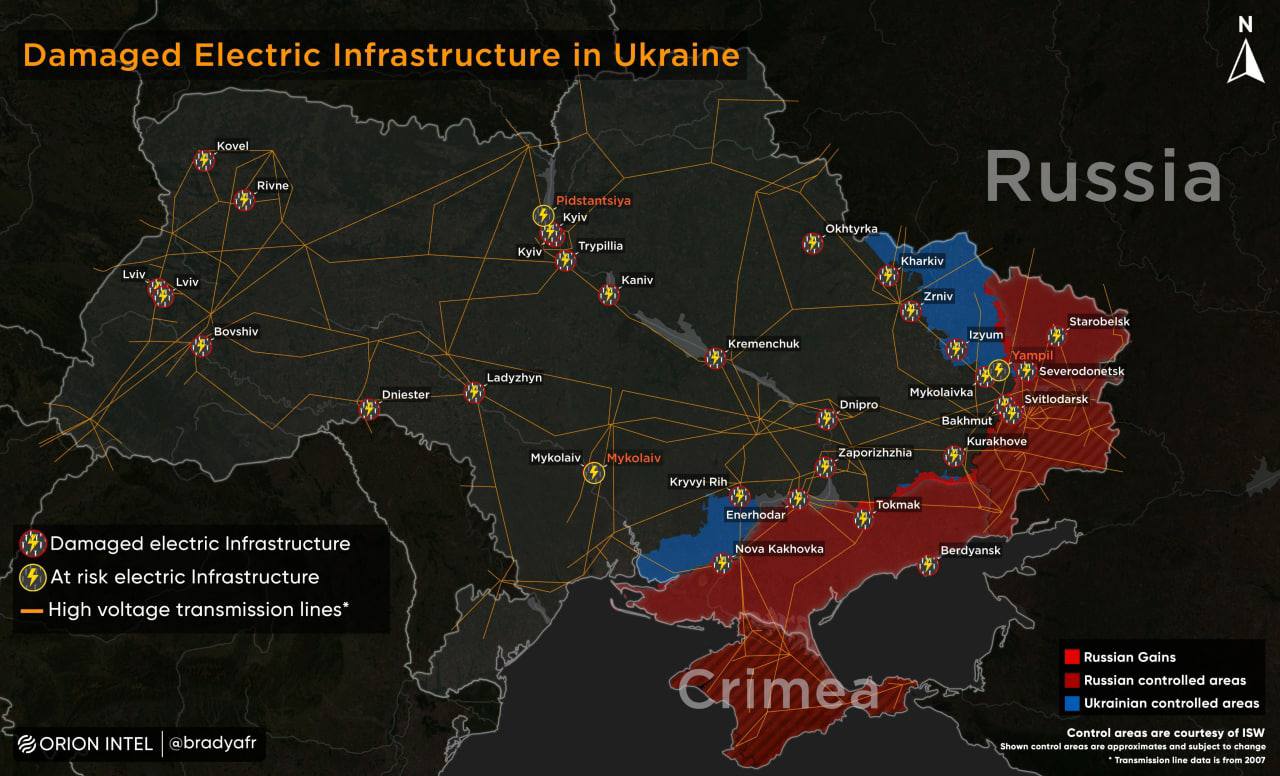After a series of rocket attacks, the Ukrainian authorities have given a new estimate of the stockpiles of missiles in the Russian arsenal. Ukrainian Defense Minister Oleksiy Reznikov published an infographic showing that Russia has already spent:
- 87% of missiles for the Iskander OTRK;
- 26% anti-ship missiles 3M55 "Onyx";
- 13% of anti-aircraft guided missiles for S-300 air defense systems;
- 63% of Caliber cruise missiles;
- 50% Kh-101 cruise missiles;
- 50% Kh-555 cruise missiles;
- 68% of Kh-22 and Kh-32 cruise missiles;
- 59% of Kh-35 anti-ship missiles;
- 27% Kh-47M2 Kinzhal hypersonic missiles.

Recall that the active use of missiles throughout Ukraine by the RF Armed Forces during the autumn campaign began on October 10. Ukrainian Forbes has calculated that the cost of missiles fired by the Russian army on that day alone is estimated at $400-700 million.
The day before, President of Ukraine Volodymyr Zelensky said that during the entire period of a full-scale war, Russia fired more than 4,700 missiles at Ukraine. According to the Prime Minister of Ukraine Denys Shmyhal, 50% of the entire energy infrastructure of the country was damaged, including thermal power plants, thermal power plants and hydroelectric power plants. As of November 17, about 10 million people were left without electricity, Zelensky reported.

The head of Ukrenergo, Volodymyr Kudrytsky, said that due to strikes on the energy infrastructure, the country is on the verge of a humanitarian catastrophe on the eve of winter. Electricity is also needed to maintain gas supplies, the head of the company said. “If consumers spend too much time without electricity and heating systems are not connected to electricity, this will create big social humanitarian problems.” Kudrytsky stressed that Russia wants to provoke a "humanitarian catastrophe" in Ukraine.
Medical institutions also suffer from a lack of electricity, despite the presence of diesel generators. In particular, it was reported that Kharkiv Hospital No. 4 had diesel fuel left to power backup generators for less than five days. The head of the energy company DTEK, Maxim Timchenko, said on November 19 that Ukrainians should think about temporarily leaving abroad in order to reduce the load on the energy system. According to the head of the WHO European Bureau Hans Kluge, 2-3 million Ukrainians may leave their homes with the onset of winter.



